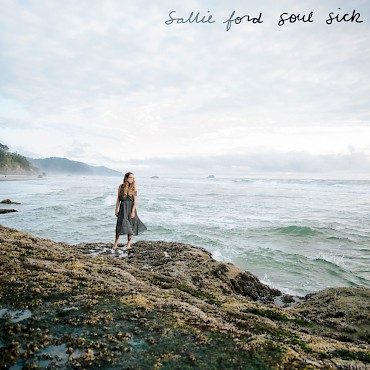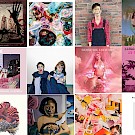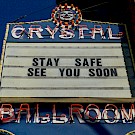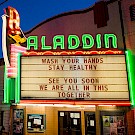 Sallie Ford has found her footing again.
Sallie Ford has found her footing again.
The life of an artist can be an insecure one. Every time you record new music, you can’t help but wonder how people will respond—or if they’ll even care. While it’s an out-of-control feeling, artists like Ford are driven to create despite inherent uncertainties.
The process is therapeutic, and Soul Sick was Ford’s way of dealing with personal issues like insecurity, anxiety and depression. It allowed her to work through struggles and “feeling the pressure of not being good enough and wanting to quit,” she explains.
Ford didn’t begin writing music until she moved from Asheville, N.C., to Portland in 2006, and she spent her nascent years surrounded by the same group of guys, The Sound Outside. The four-piece recorded two EPs and two LPs as they rose to prominence before mutually disbanding to close out 2013. By the end of 2014, Ford had an all-female backing band and a new record, one that diverged from the vintage affectations her fans had come to expect. Some missed that old sound; others praised the forward progress.
 'Soul Sick' out February 10 via Vanguard RecordsFor Ford, it was the next step in her journey and she was proud of the result. But now, on Soul Sick, she sings: “You gotta learn not to care what they think” because “you’re never, never gonna please everybody.”
'Soul Sick' out February 10 via Vanguard RecordsFor Ford, it was the next step in her journey and she was proud of the result. But now, on Soul Sick, she sings: “You gotta learn not to care what they think” because “you’re never, never gonna please everybody.”
Sonically, Ford’s second solo LP hears her dipping back into her roots and love for old rock and roll. It also sees her reuniting with familiar faces and spaces from her Sound Outside days in producer and multi-instrumentalist Mike Coykendall (M. Ward, She & Him) plus engineer Adam Selzer at his Type Foundry Recording Studio. Returning to ’60s obsessions—“that’s the sound I wanted to capture”—like The Kinks, The Sonics, The Shangri-Las and Skeeter Davis, “I knew Mike would be perfect for helping me achieve the sound I wanted for Soul Sick. He is great at nodding respectfully to the past but also being experimental and doing something new with that,” Ford describes.
“The whole record is about the present and past at the same time,” Ford says, diving into her own history to discover how it affects today—from “reading through old journals and finding raw material to capture that feeling of vulnerability” on “Loneliness Is Power,” or reflecting on being the family’s “Middle Child,” or soaking up nostalgic childhood moments on “Failure”—listen below.
“I think there is a certain deep darkness to myself that I was able to shed after going to therapy and writing this record about that journey,” Ford reveals. “Just like how I want to always get better as a musician, I know there’s always room for me to grow as a person.”
Just as she’s done in the past, Ford searched her soul, dug into some dark corners, processed and overcame emotions. She emerged stronger, better for it. Finding closure, she will now carry Soul Sick as a rallying cry.
“I’m not afraid to seek the tools and help for depression and anxiety, and to talk openly about them ’cause I think many folks can relate,” she says. “The song that gives the most conclusion to the record” is “Romanticized Catastrophe,” where she sings: “That’s who I was, not who I am. Held on to excuses with both hands, but just like sweat dripping down your skin, had to let go and let change in.”








